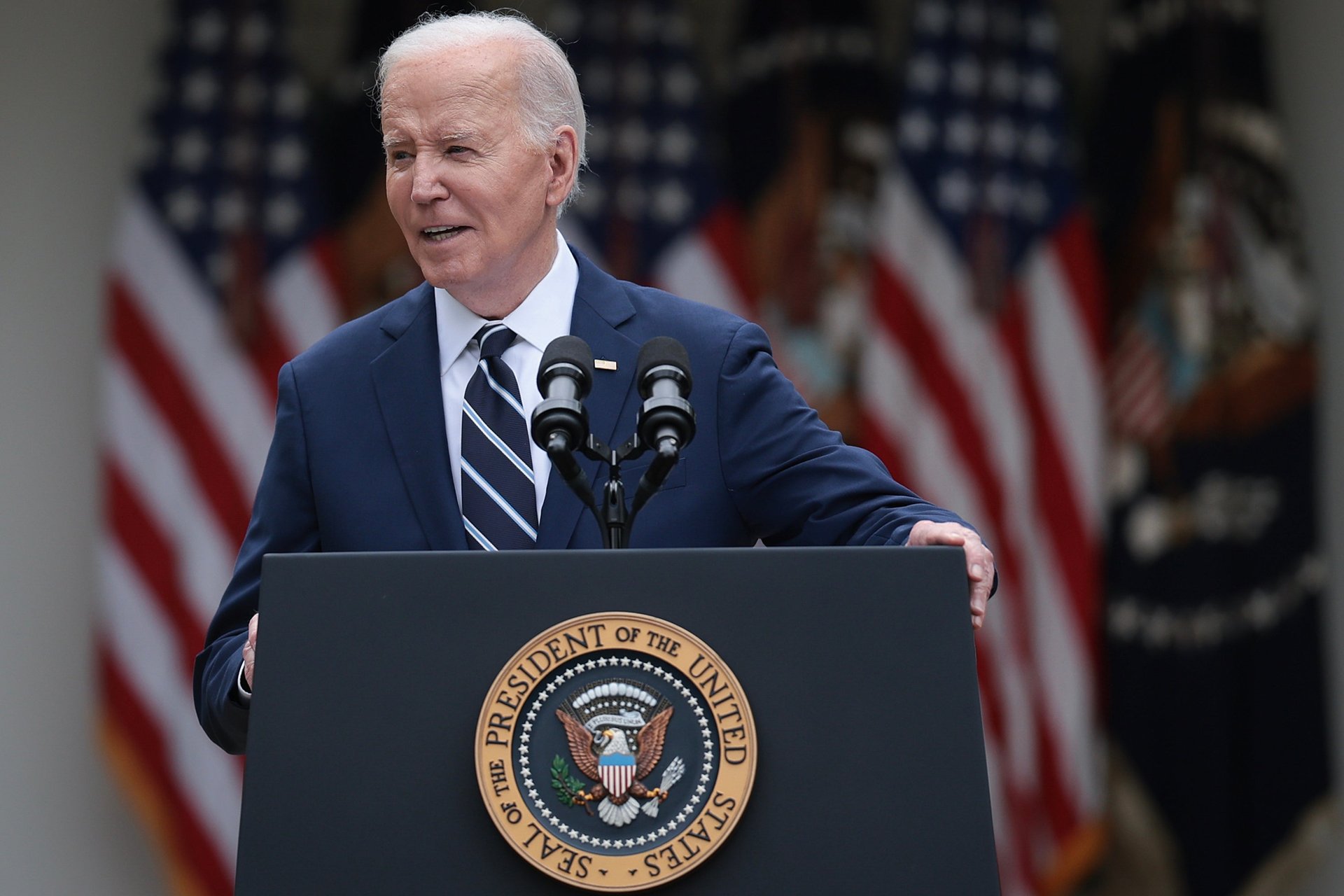The United States' quadrupled tariffs on Chinese EVs have gotten a summer start date
Beijing has threatened to take "resolute measures" to defend itself against higher tariffs

A portion of the United States’s tariffs on a range of Chinese exports, including electric vehicles, are set to take effect on August 1.
Suggested Reading
President Joe Biden earlier this month said tariffs on some EV imports will quadruple from 25% to 100% to prevent Chinese automakers from flooding the market with cheap cars. The government also plans to raise tariffs on semiconductors, lithium-ion batteries, solar cells, and some steel and aluminum products to tamp down on competition.
Related Content
The United States Trade Representative (USTR) on Wednesday issued a formal notice in the federal register to increase tariffs on certain products coming in from its rival. The office is also establishing a 30-day public comment period specifically seeking feedback on tariffs on medical supplies like syringes, masks, and gloves.
“Today, I am following through on my commitment to stand up to the People’s Republic of China’s unfair trade practices by issuing a formal proposal to modify the tariff actions,” U.S. Trade Representative Katherine Tai said in a statement. “The President and I will continue to fight for American workers, and for our economic future and national security.”
The federal notice establishes a framework for excluding some machinery from the taxes; a separate notice will be released with details on how companies can apply for machinery exclusions, which would be backdated to start on Wednesday and end on May 31, 2025.
Tai also proposed temporary exclusions on tariffs for some solar manufacturing equipment. Some solar equipment makers had warned the Biden administration that higher tariffs would hamper his clean energy goals.
Additionally, the notice provides specific tariff codes, duty rates, and implementation dates for the almost 390 product categories affected. The White House said the tariffs will affect $18 billion of imports. Although this year’s hiked rates will take effect in August, the fees coming into effect in 2025 and 2026 will start on Jan. 1.
China threatens retaliation
But China is hitting back. China’s Commerce Ministry has said the tariffs will “seriously impact the atmosphere of bilateral cooperation” and threatened to “take resolute measures to defend its rights and interests.” Liu Bin, chief expert of China Automotive Technology & Research Center, told the state-owned Global Times that tariffs of up to 25% could be raised on imported vehicles from companies like Toyota Motor, Mercedes-Benz, and BMW.
A significant target of Biden’s tariffs is China’s automakers, which have rapidly increased their investments in electric vehicles and associated industries, like batteries, in recent years. About 60% of global EV sales come from China’s car industry, according to the International Energy Agency, an intergovernmental group.
Treasury secretary Janet Yellen has said that Biden would not allow a second wave of the “China shock” of the early 2000s, referring to when a flood of Chinese imports removed 2.4 million U.S. manufacturing jobs. Yellen on Tuesday called for the U.S. and European Union to respond “in a united way” against China’s industrial policies.
The E.U. is considering imposing its own tariffs on EVs, although at least one major automaker has warned against doing so. The E.U.’s regulatory arm, the European Commission, is expected to unveil an initial decision on June 5 following a months-long investigation unto China’s subsidies for local carmakers.
Biden’s increased tariffs are also thought to be more of a symbolic than a practical gesture. As it stands, Chinese EV makers largely avoid exporting to the U.S. due to existing tariffs imposed by former president Donald Trump’s administration.
One of the few exceptions is Polestar, a Sweden-based luxury EV maker owned by China’s Geely. Zeekr, a premium EV brand owned by Geely, went public in New York last week. Geely exported 2,217 cars to the U.S. between January and March.